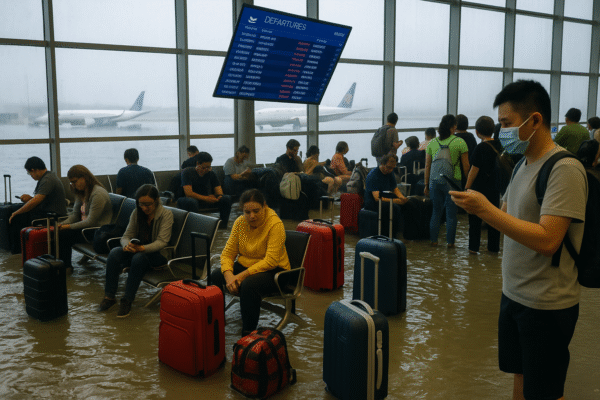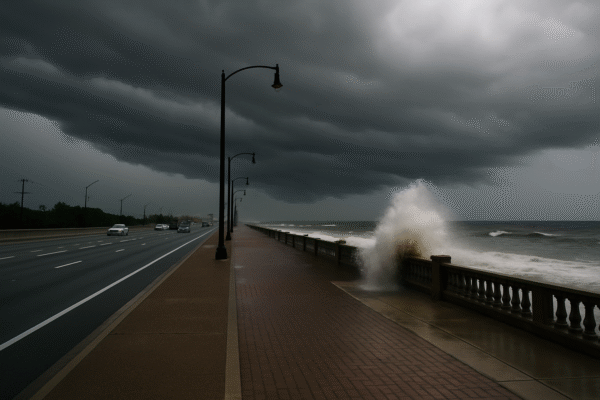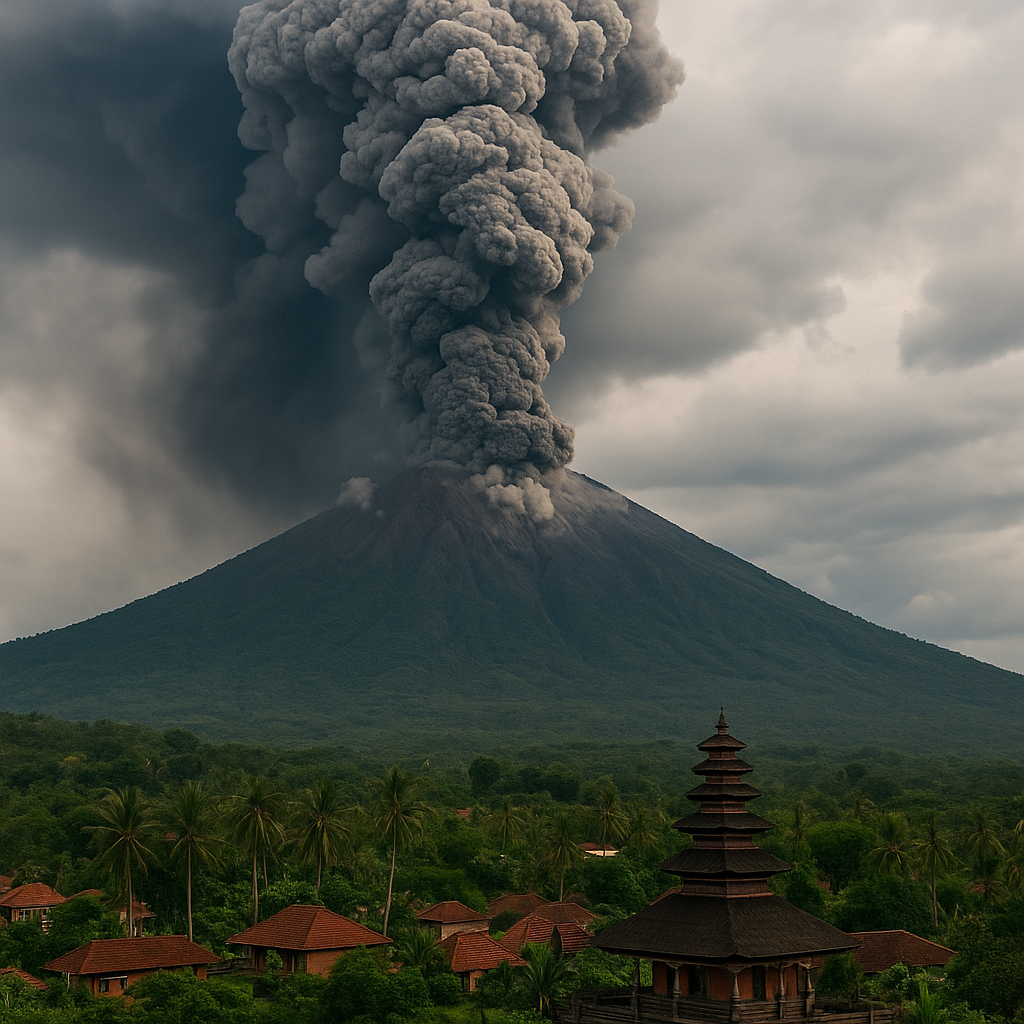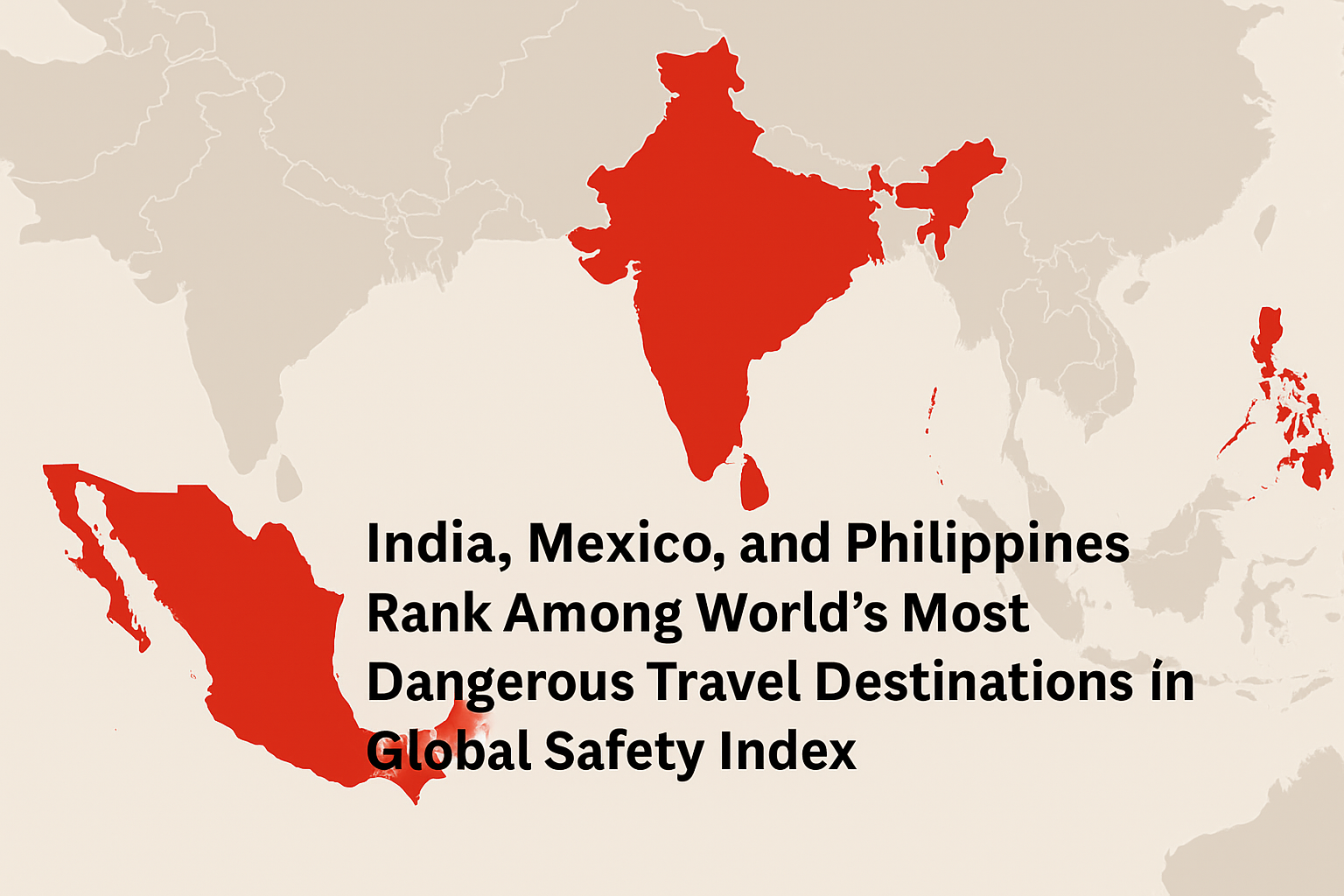A powerful volcanic eruption in Indonesia has triggered major flight disruptions across the Asia-Pacific region, particularly affecting Bali—one of the world’s most visited island destinations. The eruption of Mount Lewotobi Laki-Laki on Flores Island has sent a massive ash cloud up to 10 kilometres into the sky, forcing airlines including Air India, Jetstar, Virgin Australia, Juneyao Airlines, and Air New Zealand to cancel or divert flights bound for Bali’s Ngurah Rai International Airport.
The incident marks yet another natural disaster-related setback for Indonesia’s tourism economy, which remains vulnerable to the seismic volatility of the Pacific Ring of Fire.
Ngurah Rai Airport Faces Major Flight Disruptions
Indonesia’s main gateway to Bali, Ngurah Rai International Airport, faced widespread cancellations and schedule turmoil as visibility and safety concerns mounted. Jetstar and Virgin Australia were among the first international carriers to suspend operations on June 19, quickly followed by Air India, which turned back a flight (AI2145) mid-route from Delhi due to deteriorating airborne ash conditions.
Other affected carriers include Singapore’s Tigerair, China’s Juneyao Airlines, and Air New Zealand, all of whom cited the eruption as the reason for suspending services.
Air India’s decision to divert a live flight back to India underscores the serious aviation risk posed by volcanic ash, which can damage aircraft engines and compromise navigational systems.
Mount Lewotobi Eruption Triggers Highest Alert Level
The eruption of Mount Lewotobi Laki-Laki, which stands 1,584 metres above sea level, was strong enough for Indonesian authorities to issue a Level IV warning—the highest on the national alert scale. The National Disaster Mitigation Agency (BNPB) confirmed that ash fall blanketed nearby villages, forcing immediate evacuation orders for at least one settlement in the volcano’s proximity.
With seismic activity continuing and fresh tremors recorded, the risk of secondary eruptions or lahars (volcanic mudflows) remains elevated. Tourists and residents near the region have been urged to evacuate or shelter indoors and avoid exposure to the fine volcanic ash particles, which can pose severe respiratory and visibility hazards.
Labuan Bajo and Flores Island Tourism Hardest Hit
The eruption’s impact extends beyond Bali. Labuan Bajo, the popular departure point for Komodo National Park and home to some of Indonesia’s most pristine marine tourism experiences, has seen massive cancellations of domestic flights, especially those operated by AirAsia.
Travelers with plans to visit Komodo dragons, embark on liveaboard diving tours, or explore island-hopping adventures now face major delays and uncertain rescheduling. This disruption is especially damaging to Flores Island’s local economy, which heavily depends on foreign tourism.
Financial and Logistical Fallout for Airlines and Tourists
The cancellation of inbound and outbound flights to Bali is creating a ripple effect across international airports, stranding thousands of tourists with limited information and accommodation challenges. Hotels and resorts in Bali and Flores are already receiving extended stay requests, as travelers await clearer flight timelines.
Affected passengers have been urged to check airline websites and official airport bulletins for real-time updates. Airlines like Jetstar have offered flexible rebooking options, while Air India and others are reportedly working with local consulates to assist Indian nationals stranded in Indonesia.
Health and Safety Measures for Travelers in Indonesia
Health authorities advise travelers in Bali and affected regions to remain indoors when possible and use N95 masks and protective eyewear to guard against volcanic ash exposure, which can cause respiratory issues, eye irritation, and skin discomfort.
Indonesia’s Center for Volcanology and Geological Hazard Mitigation (PVMBG) strongly discourages anyone from venturing within seven kilometres of the Lewotobi crater. International embassies are also advising their citizens in Indonesia to register their presence and monitor evacuation alerts.
Broader Impact on Indonesia’s Tourism Industry
This incident adds to the growing list of natural challenges affecting Indonesian tourism, including past earthquakes, tsunamis, and earlier volcanic events such as the Mount Semeru eruption in 2022 and the deadly Mount Marapi blast in 2024.
Indonesia’s Ministry of Tourism and Creative Economy has acknowledged the disruption and pledged support for affected regions, including promotional relief packages and recovery funding for small tourism operators. However, industry experts warn that frequent natural disasters may deter long-haul travelers, particularly those from Australia, China, and Europe.
Airlines and Governments Urged to Enhance Crisis Preparedness
With airlines now building in contingency protocols for volcanic activity in Southeast Asia, the eruption has reignited calls for stronger collaboration between regional aviation authorities, geological monitoring agencies, and tourism boards.
Aviation experts are emphasizing the importance of alternative flight corridors, improved crisis communication, and adaptive scheduling during active geological events.
Conclusion: Tourists Advised to Remain Vigilant as Monitoring Continues
The eruption of Mount Lewotobi Laki-Laki has dealt a sudden and significant blow to tourism in Bali and the surrounding regions. While flights may resume in phases as ash disperses, travelers are advised to stay informed, follow official guidance, and plan with flexibility.
As seismic activity continues to be monitored by Indonesia’s geological authorities, the priority remains safety and communication. Tourists currently in Indonesia should maintain close contact with airlines, local officials, and embassy hotlines to navigate ongoing changes effectively.
For more travel news like this, keep reading Global Travel Wire
















